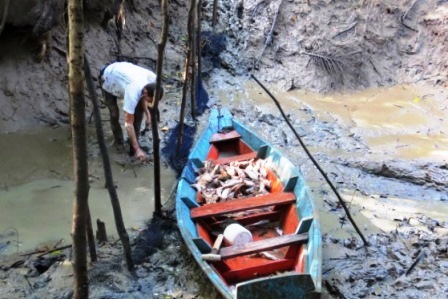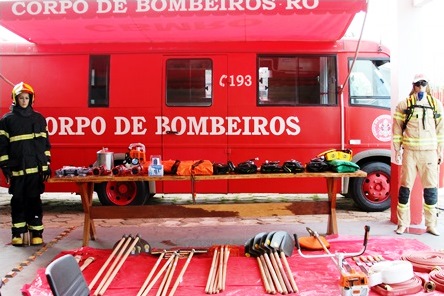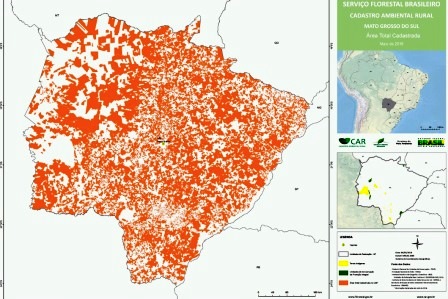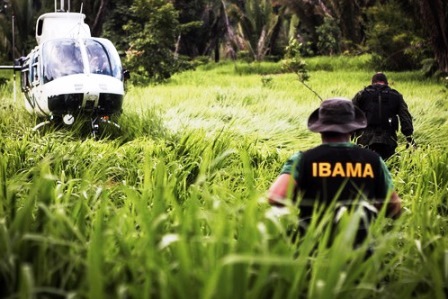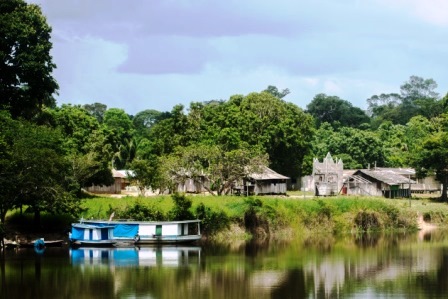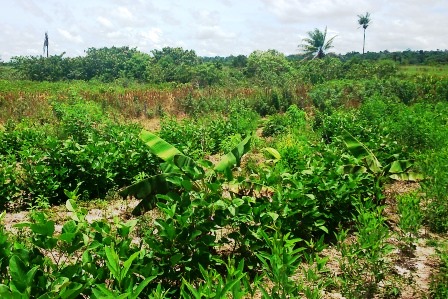RESULT AND IMPACT INDICATORS
The project activities contributed to the results related to the “monitoring and control” component (1) of the Amazon Fund Logical Framework.
The following are the results of some agreed indicators for monitoring the expected effects.
- Number of rural properties of up to four fiscal modules and lots in settlements that had their application to join the CAR filed (effectiveness indicator)
Target: 14,249 | Result achieved: 11,519
- Area of rural properties of up to four fiscal modules and lots in settlements that had their application to join the CAR filed (effectiveness indicator)
Target: not defined | Result achieved: 671,877 hectares
- Annual deforestation in Roraima (effectiveness indicator)
Target: not defined | Result achieved: 315 km²
|
Deforestation (km2)
|
2021
|
2020
|
2019
|
2018
|
|
Roraima
|
315
|
297
|
590
|
195
|
|
Legal Amazon
|
13,038
|
10,851
|
10,129
|
7,536
|
|
Acre / total (%)
|
2.42%
|
2.74%
|
5.82%
|
2.59%
|
The deforestation verified in 2018, the project's baseline, was 195 km², while in 2021 it was 315 km². This fact reveals a 61% increase in the deforestation rate in the period in question, which indicates that despite the results delivered by the project, this was not enough to compensate for the other vectors responsible for the increase in deforestation, which was also observed in the Amazon in the same period, which showed an increase in the deforestation rate of 73%.
It should be noted that the scope of the project was originally broader, also providing support for the adequacy of the state legal basis and the preparation of the Environmental Regularization Plan – PRA of Roraima, in addition to the training of public agents for the implementation and management of the CAR and the development of the Computerized System for Regularization and Environmental Licensing of Roraima (SIRLAR/RR). However, due to difficulties presented by the beneficiary for the execution of the project activities, the BNDES was requested to reduce its scope and readjust its goals, as well as the amount of support from the Amazon Fund.
Institutional and administrative aspects
Considering that a significant part of the properties registered in the CAR with the support of the project are in agrarian reform settlements, FEMARH signed a technical cooperation agreement with INCRA that had as its purpose the combination of efforts to promote the integration of actions aimed at receiving, analyzing and approving information and data for the registration and rectification of the CAR of the properties that make up the agrarian reform settlement projects in Roraima.
The project also relied on the support of municipal government representatives in the field work, mainly for the mobilization and awareness-building of family farmers with the aim of registering their properties in the CAR. Finally, it should be mentioned that FEMARH hired a specialized company, with the financial support of the Amazon Fund, to promote and support the CAR registration implemented by the project.
Risks and lessons learned
The project has undergone a significant reduction in its scope and the amount of support from the Amazon Fund throughout its execution. Various factors contributed to this, highlighting management difficulties presented by FEMARH to carry out operational and administrative procedures, as well as successive changes in the team responsible for project management.
The advent of the COVID-19 pandemic in 2020 also hampered the execution of the project. The pandemic resulted in difficulties for the holding of meetings and collective registrations, in view of the impossibility of agglomerations due to the advance of the disease.
Due to insufficient prior information, there was also an overestimation of the original goals of properties to be registered in the CAR. During the registration process, the existence of lots for sale or with their owners gone, as well as lots that became farms through acquisition by third parties (remembrance), were identified, and consequently became ineligible for the registration promoted by the project because they exceeded four fiscal modules.
There were also cases of the occupants' lack of interest in joining the CAR, since registering in it is a declaratory act by the owner or squatter, as well as the existence of rural properties that have not yet been split from plots of land that are under processing and conference process by –the Institute of Land and Colonization of Roraima (Iteraima).
Sustainability of results
The project's support for the improvement of FEMARH's physical infrastructure for the implementation and management of the CAR provided operational support for its execution and may continue to directly benefit the state and its population in the implementation of CAR-related activities.
An additional result of the project was the internalization of environmental management, since the registration of properties of up to four fiscal modules meant that small farmers in the interior had access to information about the requirements of the Brazilian Forest Code.
Another legacy was the advance in the articulation between different government agencies, in this case with emphasis on the cooperation between FEMARH and INCRA.
With the project there was an increase in the possibility of access to rural credit for small producers, since by legal provision financial institutions only grant agricultural credit, in any of its modalities, to owners of rural properties that are registered in the CAR.
It should be noted that the project, by supporting the registration in the CAR of rural properties in Roraima, promoted the identification of their owners or possessors, as well as contributed to the construction of a georeferenced forest database, including information on the areas already deforested and the remnants of native vegetation in the properties.
This database becomes a relevant asset in the hands of government and society. This information has different uses, such as for environmental management and deforestation control actions, as well as great potential to create opportunities for the valuation of ecosystem services, including through the implementation of payment strategies for environmental services to preserve the standing forest.



